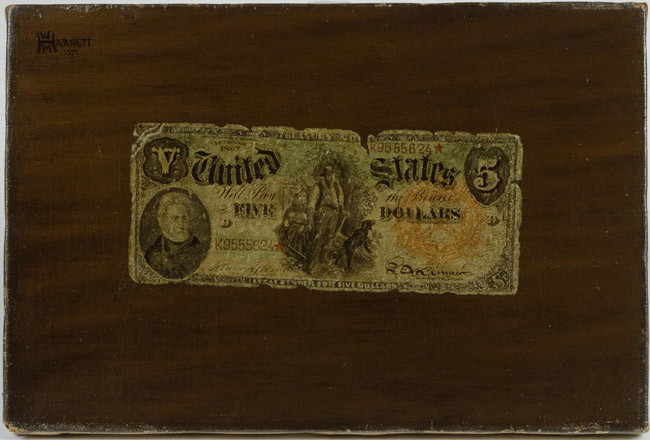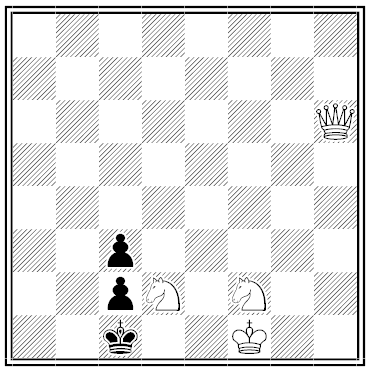
This is not a photograph, it’s an oil painting. Irish-American painter William Harnett (1848–1892) produced works of such startling verisimilitude that his paintings of American currency, like the one below, nearly got him arrested for counterfeiting. In 1886 the Secret Service visited him at his studio:
While one of them was asking my name, the other as suspiciously poking his cane into the corners of my room. ‘Have you got any more of them here?’ he asked, after he had finished a hasty search. ‘More of what?’ I replied. ‘Those counterfeits!’ he answered. Then the other detective, for both were Special Treasury officers, explained their mission. I was suspected of turning out counterfeit bank notes and they had come to arrest me and seize whatever illegal property they could find. They were very polite but extremely firm and I went down-town with them to Chief Drummond’s office. I explained to the chief how I happened to do the work and I showed him the harmless nature of it. Harmless though it was, it was clearly against the law, and I was let go with a warning not to paint any more life-like representations of the national currency — a warning it is almost needless to say that it was conscientiously heeded.
To be fair, Harnett was not representing his work as currency — but the Secret Service was on the trail of an even more ambitious artist.






